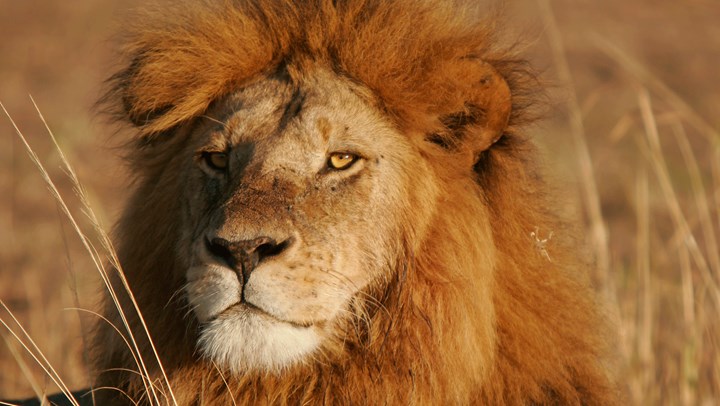
by Karen Mehall Phillips - Saturday, October 22, 2016

Few 21st century issues are on the global hunting community's radar more than those involving the African lion—and now we have more breaking news. On Thursday, Oct. 20, the U.S. Fish and Wildlife Service (USFWS) announced it is banning all trophy imports of captive-bred lions from South Africa under the Endangered Species Act (ESA)—effective immediately. The decision came from USFWS Director Dan Ashe via an article,"A Major Step Forward for Lion Conservation in Africa" he posted to the Huffington Post.
“Beginning today, the United States will not allow the import of lion trophies taken from captive lion populations in South Africa,” wrote Ashe. “While U.S. law has not prohibited such imports in the past, the protections now afforded to lions by the ESA do not allow us to issue import permits.” Wild and wild-managed lions from South Africa, however, will continue to receive import permits.
While many scientists warn that such a move goes far to shut down lion hunting at large, which scientists consider critical to the species’ conservation due to the tremendous revenue it generates and the fact hunting captive-bred lions takes pressure off wild populations—Ashe says the lion’s future hinges on balancing the needs of all who share the landscape. The eye-opener here is that the human population of sub-Saharan Africa is expected to more than double by 2050, further pushing settlements, grazing and agriculture into lion habitat. "Humans are also depleting the wild prey that supports lions," he explained, "consuming these animals and selling them as bushmeat, or wild-sourced meat. Faced with declining habitat and prey, lions are increasingly targeting livestock and people, resulting in retaliatory killing of lions."
In highlighting the complexities of this decision, one U.S.-based safari company explains how lion hunting is a leading generator of conservation revenue. "Hunter funding," he explains, "is what turns safari operators into leaders in African wildlife protection, anti-poaching patrolling and community services—health care, water infrastructure and schools—while preventing habitat conversions and fueling the economy." Helping local communities to view lions as beneficial renewable wildlife resources, not as liabilities, is key.
Past 10 Months in Review
As reported by NRAHLF.org, on Dec. 21, 2015, the USFWS decided to list the African lion under the ESA. It then announced that any hunter who takes an African lion trophy on or after Jan. 22, 2016, and intends to bring it back to the United States must obtain a special import permit under its ESA guidelines. However, it was unclear from which countries the USFWS would issue import permits—or when. Now, eight months later, no more import permits will be issued for South African captive-bred lions.
Impact on Lion Trophy Imports from Other Range Nations
Of course, with South Africa now addressed, the question is whether trophy import bans will extend to the other four primary lion-range nations: Mozambique, Namibia, Zambia and Zimbabwe. American hunters and hunter-backed organizations such as the NRA and SCI have waited all year for a decision on which nations the USFWS will approve for U.S.-hunter import permits. Addressing this in his article, Ashe said, "We are evaluating the sport hunting programs in those countries and will only approve those applications if we receive sufficient evidence of long-term benefits to wild lions resulting from those programs.”
Ashe hopes the USFWS decision will incentivize all lion-range nations. Only through demonstrating sound management practices will they be able to stockpile American hunters' dollars to cover the bases—economic or otherwise—into the future.
USFWS' Bottom Line: Hunting Conserves African Lion Populations
Ashe's announcement of the USFWS' decision cites the importance of hunting to wildlife conservation on the heels of the 12-day CITIES (Convention on International Trade in Endangered Species of Wild Fauna) CoP17 meeting in South Africa earlier this month, which also proclaimed hunting is conservation. Ashe said what hunters and other conservationists already know: "Responsible sport hunting is not why lions are in trouble" and that hunting wild and wild-managed lions contributes to the long-term conservation of the species in South Africa.” For more acknowledgement of hunters' definitive role in conservation, these facts, in turn, were announced on the heels of the internationally-acclaimed April 2016 IUCN report, "Informing Decisions on Trophy Hunting," highlighting scientific studies that leave no doubt hunting is the primary reasons lions and other wildlife species exist at all.
Leverage Through Links
For more on how hunting supports lion conservation what supports effective lion conservation, check out and share these three NRAHLF.org story links. But remember: The trick in winning the 21st century culture war on hunters and hunting is to start getting the word out that we have the upper hand!
E-mail your comments/questions about this site to:
[email protected]
Proudly supported by The NRA Foundation and Friends of NRA fundraising.
